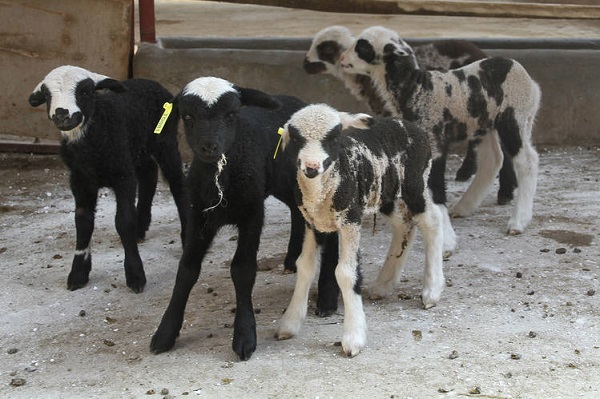Are Gene-edited Animals Drugs?

How do we regulate gene-edited animals? It’s not a new question but it’s one that is gaining urgency as biotechnology companies turn their attention to intentional alterations in animal genomes.
This week, in a comment published this week on The Conversation and quickly picked up by Newsweek and multiple other outlets, the question was posed: Are gene-edited animals drugs?
The short answer – from the standpoint of current regulations and progress in gene-edited animals – is yes, because they already are. The long answer is a little more complex.
In 2017 the US Food and Drug Administration (FDA) proposed that that all animals whose genomes have been intentionally altered will be examined for safety and efficacy in a process similar to that for new drugs.
This proposal followed the approval of the only genetically modified animal to be commercialised for human consumption – the AquaBounty salmon, engineered to grow twice as fast as natural salmon. The salmon is regulated by the FDA as a drug and although it has been approved for sale it has yet to hit the market anywhere except Canada. Canadian authorities do not require the salmon to be labelled, but the US has yet to rule on this.
The thrust of the latest round of article in the news cycle is that GE animals are no different from GE plants. That’s the view of Alison van Eenennaam, an animal geneticist at the University of California, Davis who receives public research funding from competitive grants awarded by the USDA National Institute of Food and Agriculture (NIFA), and the Biotechnology Risk Assessment Grant (BRAG) program. In 2017 she was already calling the FDA’s position “insane“.
But is it?
Ethics, ethics, ethics
The scientific community was recently thrown into ethical and regulatory chaos by the claim that a Chinese researcher, He Jiankui, claimed to have used CRISPR to alter the genomes of twin babies in China. A key concern is that CRISPR’s effects aren’t understood well enough to guarantee the twins’ wellbeing.
Why then should gene-edited animals get a free pass?
Some animals are already being bred as living ‘bioreactors’ to produce drugs at industrial scale in their milk, eggs, blood and urine.
The first commercial drug produced in this way, ATryn, was approved in 2009 and is an antithrombotic derived from the milk of genetically engineered goats. In 2014, the US Food and Drug Administration (FDA) approved Ruconest, a drug collected from the milk of genetically engineered rabbits and used to treat hereditary angioedema. In 2015 the FDA approved a genetically modified chicken that makes a drug called Kanuma, used to treat lysosomal acid lipase deficiency – a rare genetic condition that prevents the body from breaking down fatty molecules inside cells.
Little has come to light about the well-begin of these animals. But earlier this year The Wall Street Journal published a disturbing story about the unintended consequences CRISPR gene editing has had on animals. It painted a portrait of a technology nowhere near ready for use in animals (including humans) noting that “When Chinese researchers deleted a gene that limits muscle growth in mammals so that rabbits would grow leaner, their creations exhibited an unusual characteristic: enlarged tongues. Similar experiments on Chinese pigs led some to develop an additional vertebrae. Gene-edited calves died prematurely in Brazil and New Zealand.”
In a rush?
Governments around the world are grappling with these issues, pressured – to a large extent – by industry to come up with a solution quickly. It’s worth asking whether the sense of urgency is real or manufactured.
Biotech companies working on gene edited animals are nowhere near where they should be in terms of proving public good or need or safety. These animals are not ready for commercialisation and time deliberating on the ethics of re-engineering sentient beings and spent getting the regulatory framework designed to protect the animals and the humans who may consume them could be seen as time well spent.
When biotechnologists pose the question “Are gene-edited animals drugs?” it over-simplifies a very complex situation; an attempt, at a time when biotech companies are looking for more freedom and funding, to generate sympathy and grants.
In their haste some biotech companies are talking about moving operations to countries where there is less regulatory oversight. But this too is an over-simple ‘solution’. In a global market there is a need to consider where the meat and other products of GE animals, raised in for example Brazil, are going to end up. If it’s on the tables of countries with more carefully considered regulations the move can only ever provide short term gains.
This is a big conversation – and there are no shortcuts.
- This article first appeared on A Bigger Conversation February 27, 2019
Related articles
- Brave New World: What You Need to Know About Gene-Edited Farm Animals
- Organic GMOs – Ask Yourself, Can This Ever Be a ‘Thing’?
- Ignoring the Role of Livestock in Antibiotic Resistance
- Genetically Engineered Farm Animals: Regulators Rush to Keep Consumers in the Dark
- Webinar: Sense, Science and Sustainability












